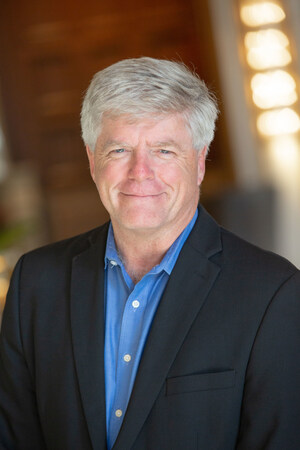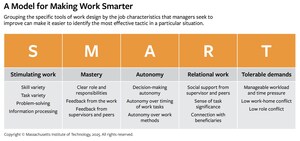The capacity for leisure can give humans a surprising edge over advanced technologies in the battle for jobs, says new essay in MIT Sloan Management Review
Leisure itself is an activity that robots cannot perform, and it might actually make us better thinkers and workers, says Adam Waytz, associate professor of management and organizations at Kellogg School of Management
CAMBRIDGE, Mass., April 23, 2019 /PRNewswire/ -- How can we avoid being automated out of our jobs? In a compelling new article, "Leisure Is Our Killer App" (MIT Sloan Management Review, April 23), psychologist and Kellogg School of Management professor Adam Waytz contends that humans' competitive edge over robots is something rather counterintuitive: our ability to unplug and allow our minds to wander.
This observation flies in the face of abundant advice by management and technology experts urging people to focus on building two skill sets that distinguish them from machines: sociability and variability. Akin to emotional intelligence, sociability involves understanding others' emotions. It enables empathic collaboration with colleagues and customers, and many organizations are making it a priority for employee development. Variability is our capacity for managing change, dealing with outliers, multitasking, and learning. In the current era, these skill sets have taken on greater urgency as pressure builds for employees to stay relevant and outperform machines.
However, jobs that require high levels of sustained sociability, such as nursing and customer service, are some of the most susceptible to burnout, which can impair job performance and increase turnover. Jobs that require a great deal of variability — those for which people must continually shift between roles or tasks and develop new skills — share similar negative consequences for job performance and turnover.
Thus, because sociability and variability — the qualities that set us apart from machines — are so taxing, leisure has become increasingly necessary for workers who fear being replaced by automation. Not only does leisure time mitigate the effects of burnout, it allows for the mind to wander, which, Waytz argues, has cognitive benefits with demonstrated value in the workplace.
Waytz cites recent studies that found that people who are highly successful in real-world creative pursuits and laboratory creative tasks are better at thinking beyond the here and now. Highly creative people think more deeply about different points in time, different places, and alternative realities — and leisure can help us develop that capacity.
"By encouraging our minds to wander, leisure activities pull us out of our present reality, which in turn can improve our ability to generate novel ideas or ways of thinking," Waytz writes. "When we let our minds drift away from work, we return to our tasks capable of tackling them in more inventive and creative ways. By prioritizing leisure, we can nurture and protect the qualities that set humans apart and improve work in the process."
To read the full article, please visit MIT Sloan Management Review.
About the author:
Adam Waytz is a psychologist and associate professor of management and organizations at the Kellogg School of Management at Northwestern University. His first book, The Power of Human (W.W. Norton, 2019), is about the importance of humanity in an increasingly humanless world.
About MIT Sloan Management Review
A media company based at the MIT Sloan School of Management, MIT Sloan Management Review's mission is to lead the conversation among research scholars, business executives, and other thought leaders about advances in management practice, especially those shaped by technology, that are transforming how people lead and innovate. MIT Sloan Management Review captures for thoughtful managers the creativity, excitement, and opportunity generated by rapid organizational, technological, and societal change.
Contact |
|
Emily Lavelle |
|
Emily Lavelle Communications |
|
+1-212-390-1328 |
|
SOURCE MIT Sloan Management Review

Related Links
WANT YOUR COMPANY'S NEWS FEATURED ON PRNEWSWIRE.COM?
Newsrooms &
Influencers
Digital Media
Outlets
Journalists
Opted In





Share this article